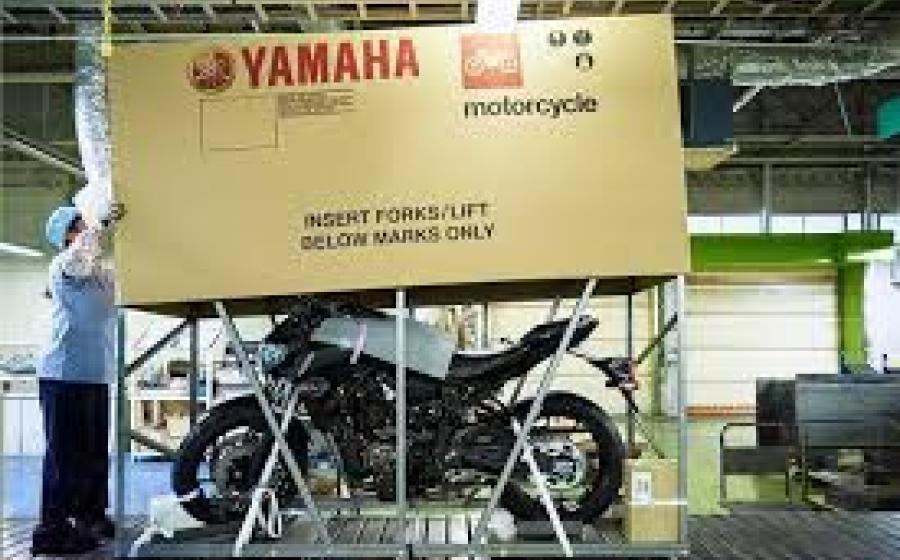
Yamaha Motor Co. has announced its plans to incorporate low-carbon, recycled steel sheets in the packaging frames used for shipping motorcycles. This initiative, set to commence in October 2024, represents a significant stride towards reducing the company's carbon footprint and advancing its commitment to environmental sustainability.
The recycled steel sheets, produced by Tokyo Steel Manufacturing Co., are manufactured using electric furnaces, a process that markedly reduces carbon dioxide emissions compared to traditional blast furnace methods. This innovative approach involves melting scrap iron sourced from various origins, including demolished buildings, discarded home appliances, and scrapped automobiles, before rolling it into sheets suitable for industrial use.
Yamaha Motor's decision to adopt this eco-friendly material is unprecedented in Japan's motorcycle industry for packaging frames. The company has conducted extensive trials in collaboration with Tokyo Steel to ensure that the recycled steel meets the necessary material characteristics, quality standards, and suitability for packaging applications.
The environmental benefits of this transition are substantial. Conventional steel production, which relies on iron ore and coke smelted in blast furnaces, is notorious for its high carbon dioxide emissions. In contrast, the electric furnace method employed for these recycled steel sheets significantly reduces the carbon footprint associated with the production process.
Yamaha Motor plans to implement this change gradually, starting with a portion of its packaging frames and progressively expanding the scope of application. This phased approach will allow the company to incrementally increase the ratio of recycled materials used in its packaging, ensuring a smooth transition without compromising product quality or safety.
This initiative aligns closely with the Yamaha Motor Group Environmental Plan 2050, an ambitious strategy that aims to achieve carbon neutrality across the entire supply chain, including all business activities, by the year 2050. By addressing the environmental impact of its packaging materials, Yamaha is tackling an often-overlooked aspect of the automotive industry's carbon footprint.
The move also reflects a growing trend in the automotive and motorcycle industries towards more sustainable practices. As consumers become increasingly environmentally conscious, manufacturers are under pressure to reduce their ecological impact at every stage of the product lifecycle, from production to packaging and shipping.
Yamaha's initiative could potentially set a new standard for the industry, encouraging other manufacturers to explore similar eco-friendly alternatives in their packaging and shipping processes. The success of this program could pave the way for broader adoption of recycled materials in various aspects of motorcycle and automotive manufacturing.

